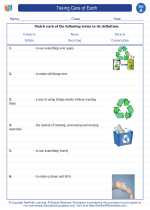Taking Care of Earth -> volcanic activity
Volcanic Activity
Volcanic activity refers to the processes and phenomena associated with the formation and eruption of volcanoes. This natural phenomenon is a result of the movement of molten rock, or magma, beneath the Earth's surface. When this magma erupts onto the Earth's surface, it is called lava. Volcanic activity can have significant impacts on the environment and human populations.
Types of Volcanoes
There are several types of volcanoes, including shield volcanoes, stratovolcanoes, and cinder cone volcanoes. Each type has unique characteristics and eruption patterns.
Causes of Volcanic Eruptions
Volcanic eruptions are caused by the release of pressure from within the Earth's crust. This pressure can build up due to the movement of tectonic plates, the accumulation of magma, or the release of gases.
Effects of Volcanic Activity
Volcanic activity can have both positive and negative effects. While eruptions can lead to destruction of property and loss of life, they also contribute to the formation of new land and the release of important nutrients into the soil.
Study Guide
Here are some key points to remember when studying volcanic activity:
- Understand the different types of volcanoes and their characteristics.
- Learn about the causes of volcanic eruptions and how they are related to plate tectonics.
- Explore the effects of volcanic activity on the environment and human societies.
- Study specific examples of famous volcanic eruptions and their impacts.
◂Science Worksheets and Study Guides First Grade. Taking Care of Earth

 Worksheet/Answer key
Worksheet/Answer key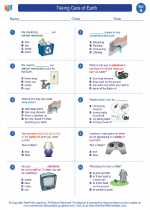
 Worksheet/Answer key
Worksheet/Answer key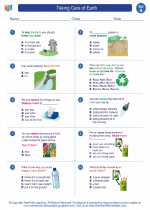
 Worksheet/Answer key
Worksheet/Answer key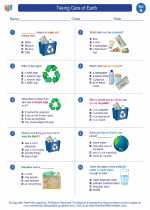
 Vocabulary/Answer key
Vocabulary/Answer key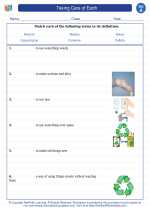
 Vocabulary/Answer key
Vocabulary/Answer key